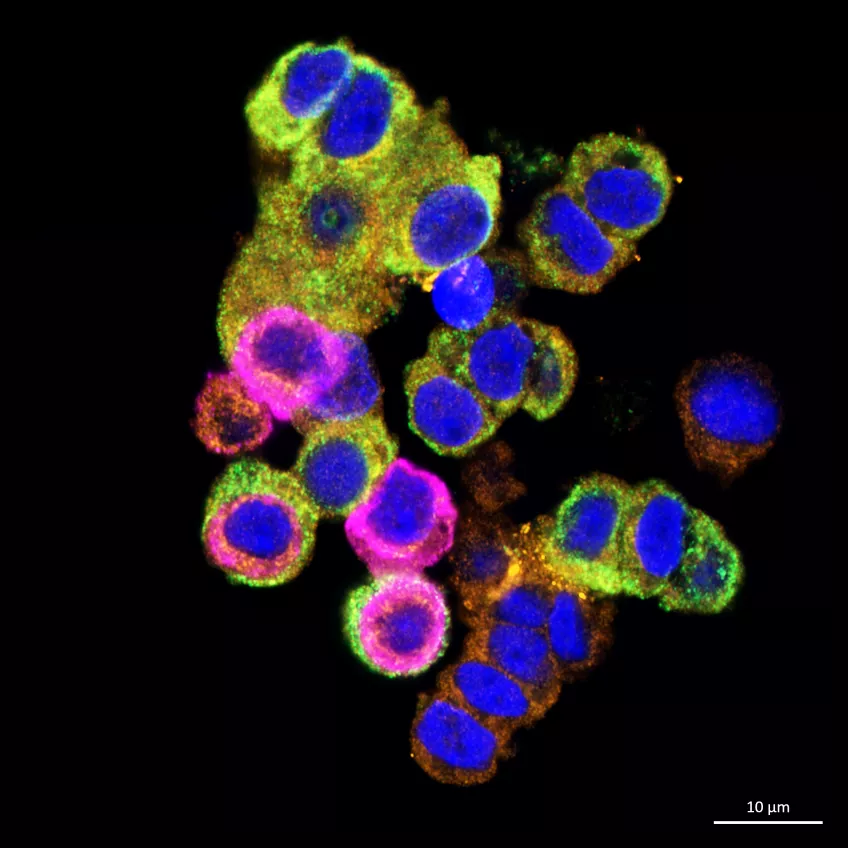Insulin affects many bodily functions, and is required for survival. It causes cells to take up glucose from the blood, storage of energy in tissues, and affects fat metabolism, among other functions. To better understand how insulin is released and which proteins are involved in this process can give valuable clues to future treatments.
In type 2 diabetes the body needs to produce more insulin than usual to control blood glucose, due to a lack of responsiveness in target tissues, which leads to exhaustion and death of beta-cells, the cells in the pancreas which produce insulin. When this happens, blood glucose levels get dangerously high, which can lead to serious complications.
Researchers at Lund University have previously discovered that the protein CD59 is necessary for insulin secretion from beta-cells. CD59 is otherwise most well-known for its role in defending cells from damage caused by the immune system.
Now researchers at Lund and Uppsala University discovered two new variants of CD59 that have been named CD59-IRIS-1 and IRIS-2. Compared to the previously known variant of CD59, which remains at the cell surface and protects the cell from immune attack, CD59-IRIS-1 and -2 remain inside the cell. There they have another function and affect beta-cells' ability to secrete insulin.
– Beta-cells that lack the CD59 variants we have discovered cannot secrete insulin when required to regulate blood glucose levels. We also saw that there was not as much CD59-IRIS in beta-cells from patients with type 2 diabetes, compared with healthy individuals. This made us very interested as it could mean that the lack of CD59-IRIS could contribute to the insufficient insulin secretion seen in some diabetic patients, says Ben King, Docent at Lund University and one of the researchers behind the study.
With help from the gene scissors CRISPR/Cas9, the researchers “silenced” the gene encoding CD59-IRIS-1 and -2, in beta-cells from mice, rats, and humans. This stopped the cells from secreting insulin.
– But when we introduced the newly discovered CD59-IRIS variants back into the beta-cells, they started to secrete insulin again. We also saw that patients with diabetes had lower levels of CD59-IRIS, which we also saw in beta-cells from mice with diabetes, says Ewelina Golec, a PhD student at Lund University who is defending her thesis on the subject this week.
The next step in the research will now be to investigate whether the amount of these specific CD59 variants can be altered in patients with diabetes. The hope is that this could improve insulin secretion.
– Its exciting that the body uses the same gene to produce different variants of one protein that have such different functions, from protecting against the immune system, to insulin secretion. It was a big surprise and shows how it is possible that only 20 000 genes in the human genome are enough to achieve all the complicated functions in our bodies. Presumably the IRIS proteins also contribute to secretion of other substances than insulin, for example in the brain, which we now plan to investigate, says Anna Blom, who leads the research group at Lund University.



